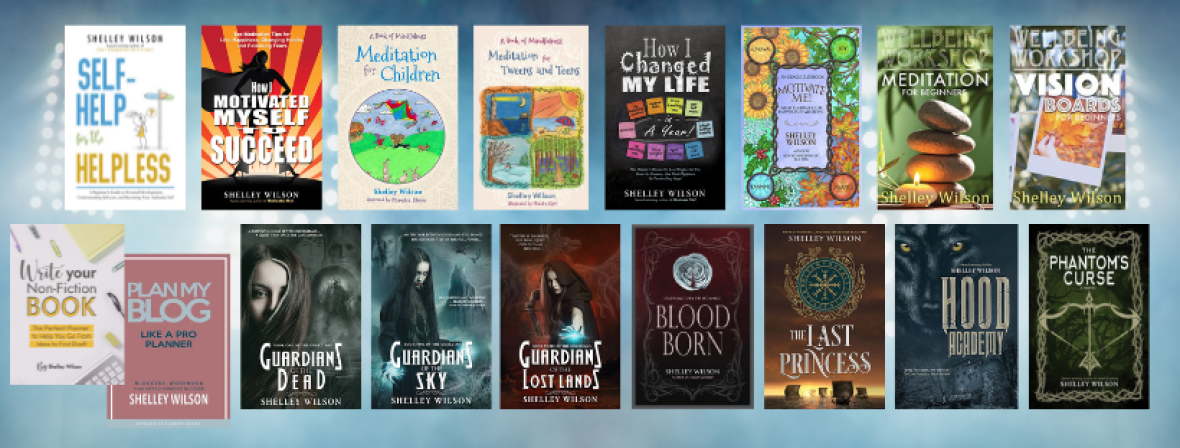Learning from our mentors helps us to improve and evolve in our chosen field, and I still recall the advice given to me at the start of my writing journey.
To help the next generation of writers’ young and old, I started a Top 10 Writing Tips feature whereby established authors shared their words of wisdom and favourite writing tips. Back by popular demand, I’m delighted to share more inspiration and insights for season two.
Meet Taryn Johnston

I run an Independent Publishing and Multi-Media Marketing Company. With over 20 years of writing and publishing experience, I understand the pitfalls that many self-published authors fall foul of and can help you to avoid them.
Being an indie publisher means that I get to work really closely with my authors. I treat every project individually to ensure that each book comes out exactly how it’s meant to, even if that’s not always how the author initially envisioned it.
The fact that I work through the book with the author from start to finish means that I know the book and the author thoroughly before we publish. This gives the author the confidence that I “get them” and what the book has been written to achieve. This takes time and the process is not something that is achieved in a matter of weeks. I consider the relationship with my authors as important as their book.
Taryn’s top tips for writing and also working with a publisher.
- It’s a cliché but write. So many people are scared about their grammatical skills or poor spelling. There are specialists that can help with all manner of editing and proofreading, what they can’t do is get the story out of your head – only you can do that. If you’re worried about writing, then dictate it. Software can help transcribe it enough to be given to an editor.
- Always write in your own voice. Especially if it’s non-fiction. Your readers want to know you, if they see you in person then they’ll know if the book doesn’t sound like you. Keep your colloquialisms, favourite expression and tone. You are who you are for a reason so, make sure the book reflects this. This is an issue when using a ghost-writer, so do ensure if you’re doing this that they take the time to listen carefully to how you speak. I spend weeks/months recording and interviewing anyone that I am ghost-writing for, just to make sure that the final product reflects their personality and style.
- Write every day, even if it’s just for a few minutes. I’m often told that someone doesn’t have time to write. This is rarely true, there could be times when a partner is watching something on TV you’re not interested in or you may have a lunch break. Getting into the habit of writing is like any activity, the more often you do it, the often you’ll want to do it (unless it’s HIT and no one really wants to do that!). Writing is habit forming, try to do it uninterrupted at the same time and in the same place each day.
- Come up with new ideas, don’t just rehash old ones. This I especially true in self-help style books and fantasy novels!
- Use beta readers. These guys are heroes and will often tell you if your story is similar to one that is existing or if you have massive plot holes! These are your pre-audience and will give you the feedback before you launch.
- Research your publisher carefully. It’s a sad thing to say, but with all industries there are unethical companies. Paying for publishing services (like editing, formatting and design work) is standard, even the big publishing houses offer ‘Partnership Publishing’ deals whereby the author contributes to the costs, in return for a higher royalty share; however, there are those that couch their services this way when in fact, they are ‘vanity publishers’ and will not only overcharge you but will also leave you with a sub-standard finished book. Ensure that you check out reviews or look at certified publishers, The Alliance of Independent Authors provides something like this to protect authors.
- Decide what type of publishing deal you want. The top three are Self-publishing, Traditional Publishing and Partnership Publishing – most indie publishers like myself will offer partnership and some traditional deals. There are pros and cons to all three, the main considerations for you will be cost, copyright and royalties. I’m always happy to explain the differences when I speak to a new author, if a publisher is cagey about this, consider your choice carefully.
- When you’re sending your work to be considered by a publisher, again, do your research. Check that they are the right genre for you, find out who you should address and only send to ONE publisher at a time. Do not send a blanket email to several, this will not elicit the response you want.
- Take the time to understand who your target demographic is, work out who you’re writing it for and who is likely to be picking it up to read. This will help your publisher to assist you with the book and prepare PR when it comes time for the release.
- Marketing – unless your publisher specifically says they will do it for you, the emphasis will be on you. It is your publisher’s obligation to create you a book that is ready for retail and to put it into the distribution channels, it is not down to them to do the marketing. Create your social media account beforehand and work at creating a following and a hype prior to the book’s release. You may even wish to consider working with a publicist to raise your profile (this will assist your publisher in getting the book accepted into stores).
Connect with Taryn here:
Taryn’s Linktree.
Take a look at some of the authors she has worked with.

